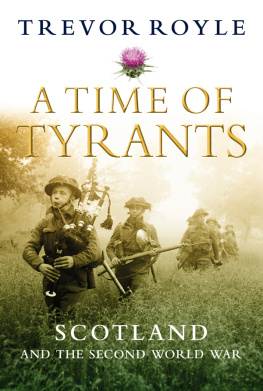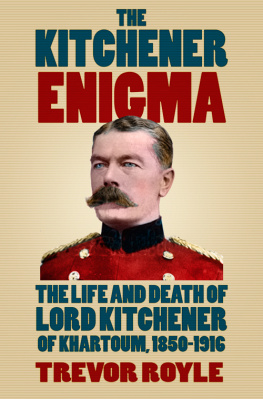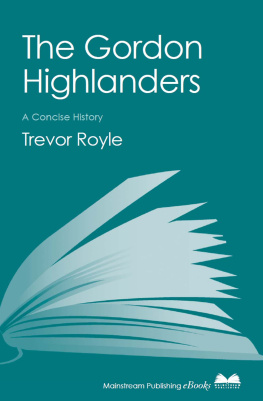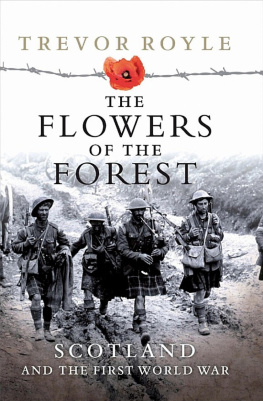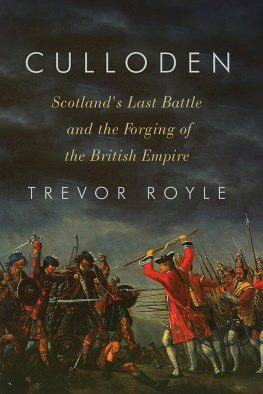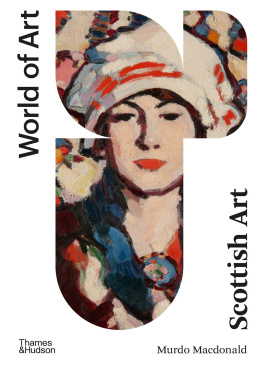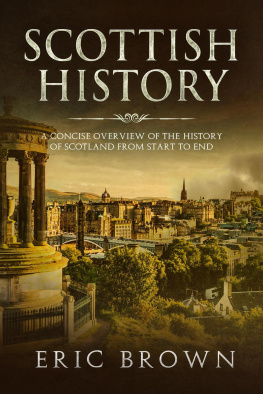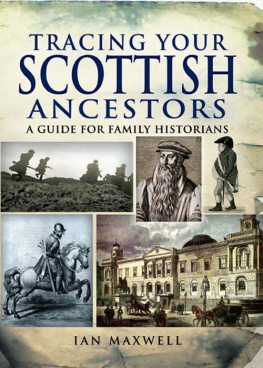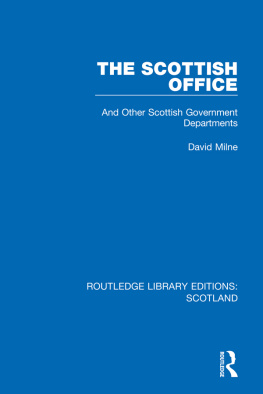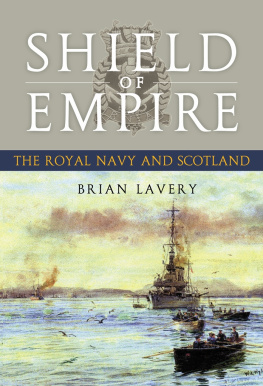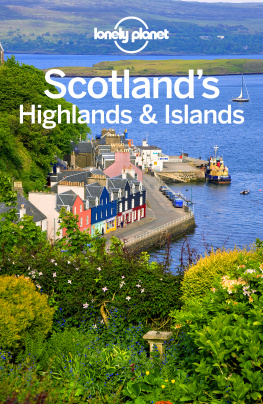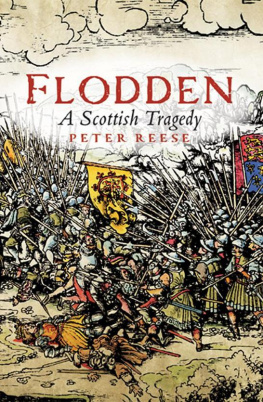A Time of Tyrants
A Time of Tyrants
Scotland and the Second World War
Trevor Royle
First published in 2011 by
Birlinn Limited
West Newington House
10 Newington Road
Edinburgh
EH9 1QS
www.birlinn.co.uk
Copyright Trevor Royle 2011
All rights reserved.
No part of this publication may be reproduced, stored or transmitted in any form without the express written permission of the publisher
The moral right of Trevor Royle to be identified as the author of this work has been asserted by him in accordance with the Copyright, Designs and Patents Act 1988
ISBN: 978 1 84341 055 3
eBook ISBN: 978 0 85790 094 4
British Library Cataloguing-in-Publication Data
A catalogue record for this book is available from the British Library
Typeset by Iolaire Typesetting, Newtonmore
Printed and bound by MPG Books Ltd, Bodmin
Always in the darkest loam
A birthday is begun;
And from its catacomb
A candle lights the sun.
William Soutar,
In the Time of Tyrants,
1937
List of Illustrations
Preface and Acknowledgements
This book was conceived as a sequel to The Flowers of the Forest, an account of the part played by Scotland in the First World War, which was published in 2006. It is similar in structure and sets out to bring together the military history of the Second World War with an narrative about Scotlands political, social and economic role during the conflict. Like its predecessor the intention is not simply to write a history of the war as seen through Scottish eyes or to wrap its main events in a kilt. Rather, it is the story of the role played by Scotland and Scots in the British (and wider Allied) management of a war which was very different from the preceding global conflict. Inevitably, many of the concerns of The Flowers of the Forest are revisited in this book: the role of women; the contribution of the heavy industries; the ever-changing kaleidoscope of Scottish domestic politics; and Scotlands contribution to the war effort through the armed forces, especially the roles played by the three Scottish infantry divisions and other Scottish forces on all the main battle fronts. Some personalities reappear from the earlier conflict politicians such as Tom Johnston and James Maxton, and poets Hugh MacDiarmid and William Soutar, for example and some issues resurface, such as the question of home rule which was one of the casualties of August 1914 and which remained unresolved until the passing of the Scotland Act in 1998.
Otherwise the war of 193945 was a completely different experience, and it threw up problems and issues which were quite dissimilar from the events of the earlier conflict. For a start, between the fall of France in May 1940 and the decision of the USA to enter the war following the Japanese attack on its Pacific naval base of Hawaii in December 1941, Britain prosecuted the war against Germany alone, with the support of Dominion forces and the free forces of those European powers which had managed to escape from Nazi occupation. That gave Scotland a distinctive role as many of the migr forces, notably the Poles, were stationed in the country and added to the sense that in the closing stages, at least the Allies were indeed a united nations. Many of the Poles stayed on in Scotland after the war, either because they had married Scottish girls or were persuaded not to return to their homeland following the carve-up at Yalta in February 1945 which laid the basis for the creation of a Communist government in post-war Poland. Norwegians, French, British Hondurans, Italians and Americans added to the racial mix, and for the first time in many years Scotland became a more variegated place socially and culturally, even if it was only a temporary innovation.
There were other factors. The Scottish land mass provided ideal territory for training, especially in the remote Highlands and Western Islands, most of which was a Protected Area throughout the conflict. Industry, mainly in the central belt, also played a part, and it is true to say that the war came as a lifeline to shipbuilding, steel and munitions. Whether that was for good or for ill in the longer term is still a moot point. As happened in the earlier conflict, women played a full role with thousands being conscripted under the terms of the National Service Acts of 1941. It is also fair to claim that the arts in Scotland flourished during the war, especially in literature where a new generation of younger writers such as J.K. Annand, Hamish Henderson, Maurice Lindsay, Alexander Scott and Douglas Young built on the example of Hugh MacDiarmids renaissance movement of the 1920s. But it was in the world of politics that the war had the deepest impact on Scotland. Although the country remained part of the union, and political nationalism was never a determining factor in national life until the 1970s, Scotland was offered a tantalising glimpse of what devolution might be like under the guardianship of Secretary of State Tom Johnston.
Most of the research for this volume was conducted in the National Archives of Scotland in Edinburgh and the National Archives at Kew. In both places I received nothing but courteous assistance from the ever-helpful staff. Thanks are also due to the staff of the National Library of Scotland, where I have been a reader for over four decades, and the University of Edinburgh Library, where extended loans of key texts greatly aided my research. I am also grateful to Professor Tom Devine for making it possible for me to hold an Honorary Fellowship in the School of History, Classics and Archaeology at the University of Edinburgh, where I enjoyed the ready support of my friend Dr Jeremy Crang during his tenure as director of the Centre for the Study of the Two World Wars. After many years writing as an independent historian this was a singular privilege. It has also been of some significance to me that most of the book was written at my home in Portobello which stands less than a hundred yards from targets machine-gunned during the Luftwaffes first major attack on the UK mainland in October 1939.
For permission to quote copyright material I would like to thank the following: Carcanet Press for The New Divan 99 by Edwin Morgan from Edwin Morgan, The New Divan, Carcanet Press, 1977; Eric Glass Ltd for Consanguinity by Ronald Duncan from Ronald Duncan, The Perfect Mistress, Rupert Hart Davis, 1969; Robert Hale Ltd for excerpts from Maurice Lindsay, Thank You for Having Me, Robert Hale Ltd, 1983; Cath Scott for Coronach for the Dead of the 5/7th Battalion The Gordon Highlanders by Alexander Scott MC, from Alexander Scott, Selected Poems 19431974, Akros Publications, Preston 1975. Extracts from regimental histories are produced by kind permission of the trustees of regiments concerned. Every effort has been made to contact copyright holders and any omissions will be made good in future editions.
No writer could hope to have a more agreeable or supportive publisher than Birlinn. Hugh Andrew welcomed the proposal with enthusiasm, and I received nothing but professional help and support from him and his colleagues. They all have my thanks.
Trevor Royle
Edinburgh/Angus
Spring 2011
Prologue
The Last Hurrah; Bellahouston 1938

